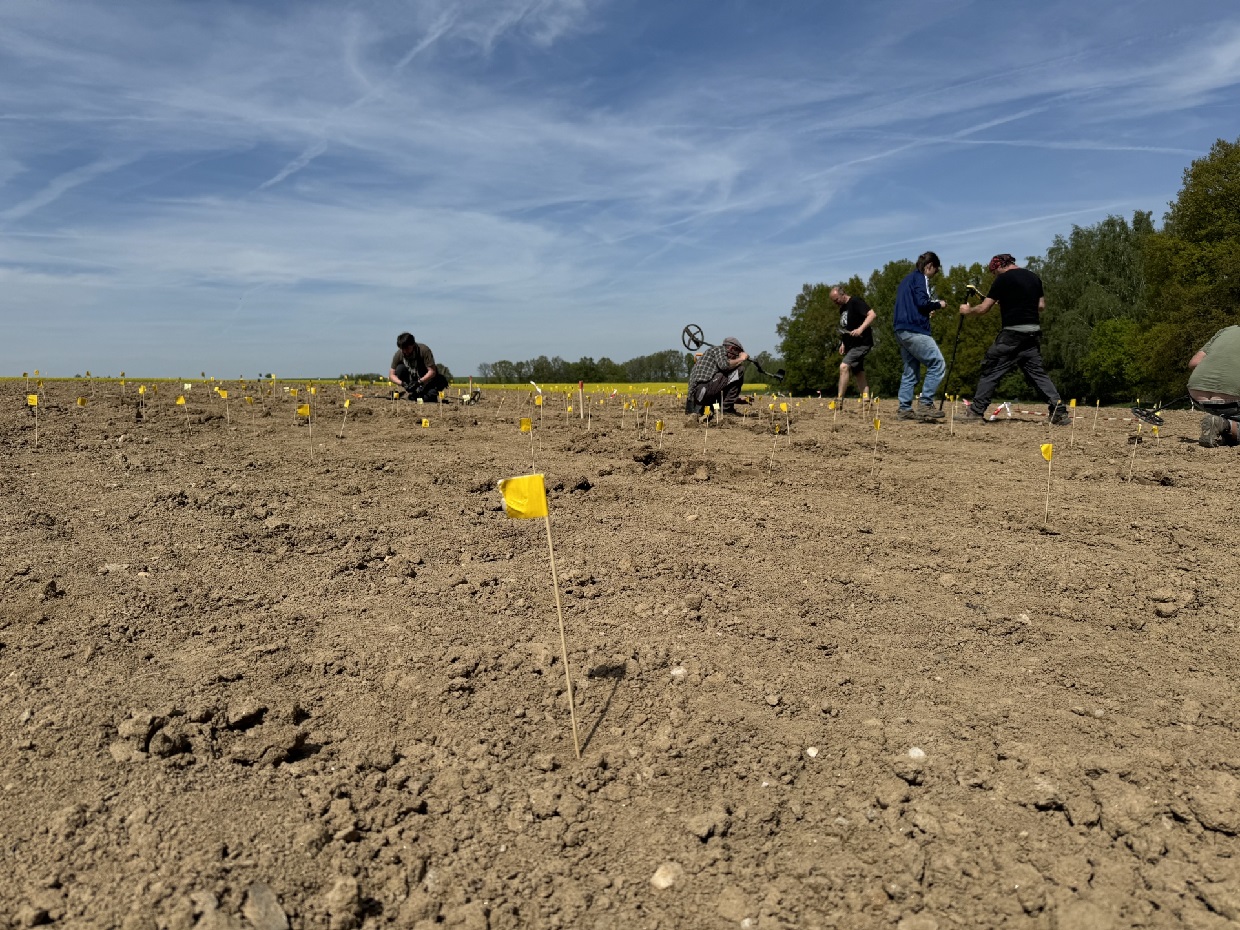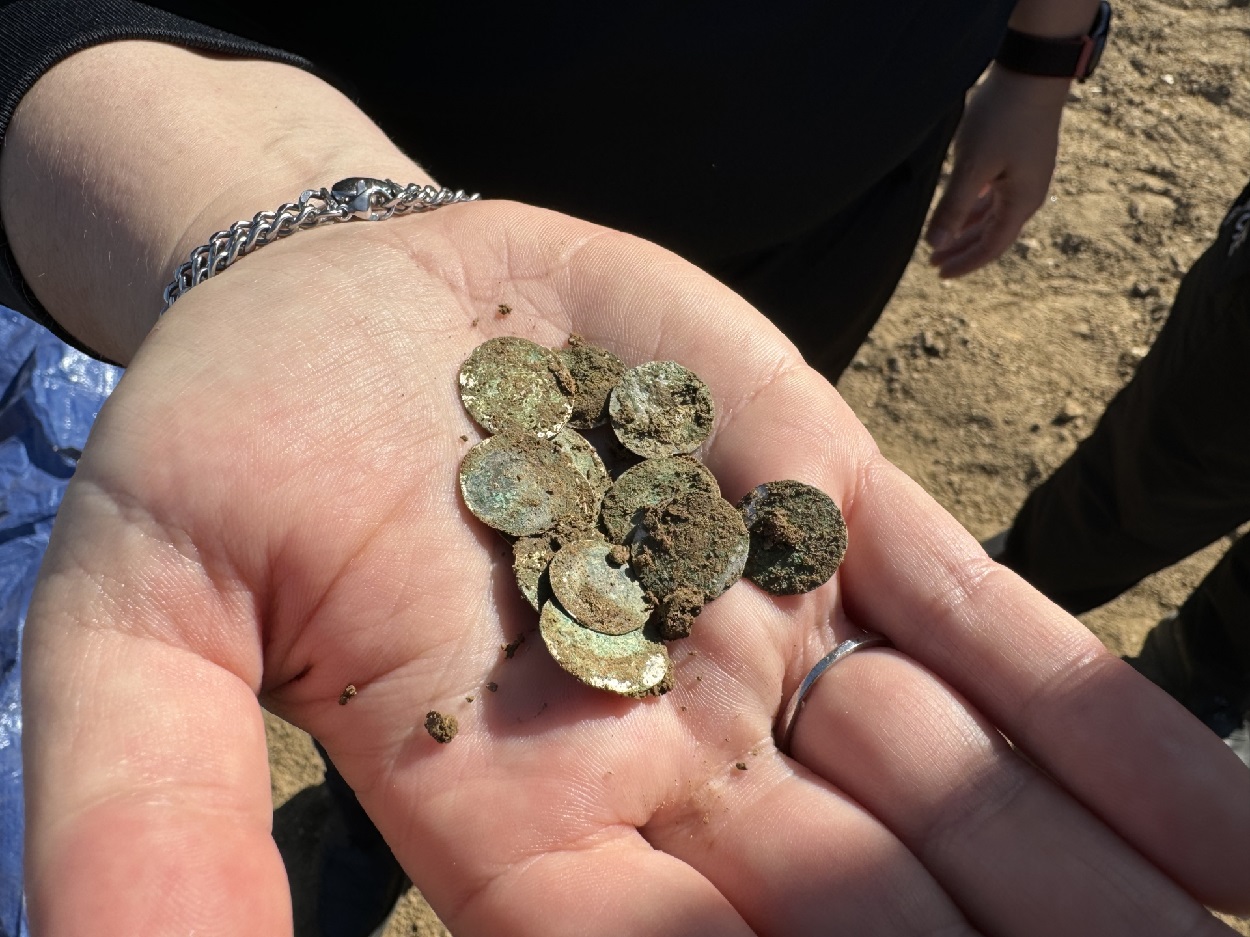A coin hoard of over 2,000 medieval coins has been found near Kutnohorsk in the Czech Republic.
The hoard was first discovered by a woman walking through a field when she stumbled across a few silver coins on the surface.
Upon reporting the find to local authorities, a team from the Institute of Archaeology of the Academy of Sciences of the Czech Republic conducted a survey of the field.
The team unearthed more than 2,150 silver deniers that date from between 1085 and 1107 during the medieval period.

The denier is a medieval coin that takes its name from the Frankish coin first issued in the late 7th century. The denier represents the end of gold coinage circulating in Europe, which, at the start of Frankish rule, had either been Roman (Byzantine) or “pseudo-imperial”.
The deniers are made from a mint alloy, which, in addition to silver, also contains copper, lead and trace amounts of other metals. Determining this particular composition can also help determine the origin of the silver used.
According to a press statement by the Institute of Archaeology of the Academy of Sciences of the Czech Republic, the hoard was minted by Bohemian rulers: King Vratislav II, and princes Břetislav II and Bořivoje II.
The hoard was initially kept in a ceramic vessel, likely deposited in the early 12th century during a period of political instability. At the time, members of the Přemysl dynasty fought over the princely throne of Prague and often marched their armies through today’s Kutnohorsk Region.
Lenka Mazačová, director of the Czech Silver Museum in Kutná Hora, said: “The coins were likely minted in the Prague mint from silver, which was imported to Bohemia at the time.”
The coins are now being examined by experts from the Institute of Archaeology of the Academy of Sciences of the Czech Republic, Prague, and the Czech Silver Museum in Kutnohorsk.
Header Image Credit : CAS
Sources : Institute of Archaeology of the Academy of Sciences of the Czech Republic





